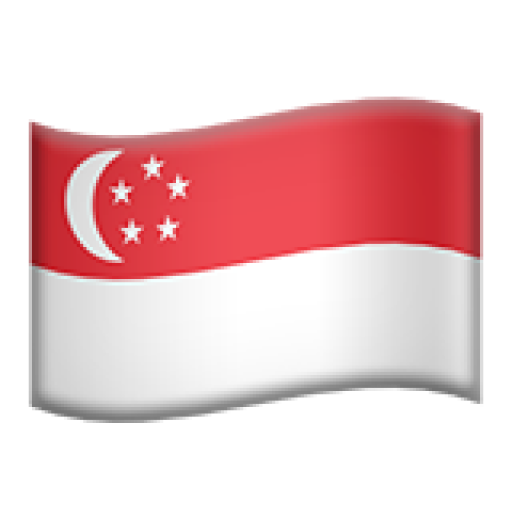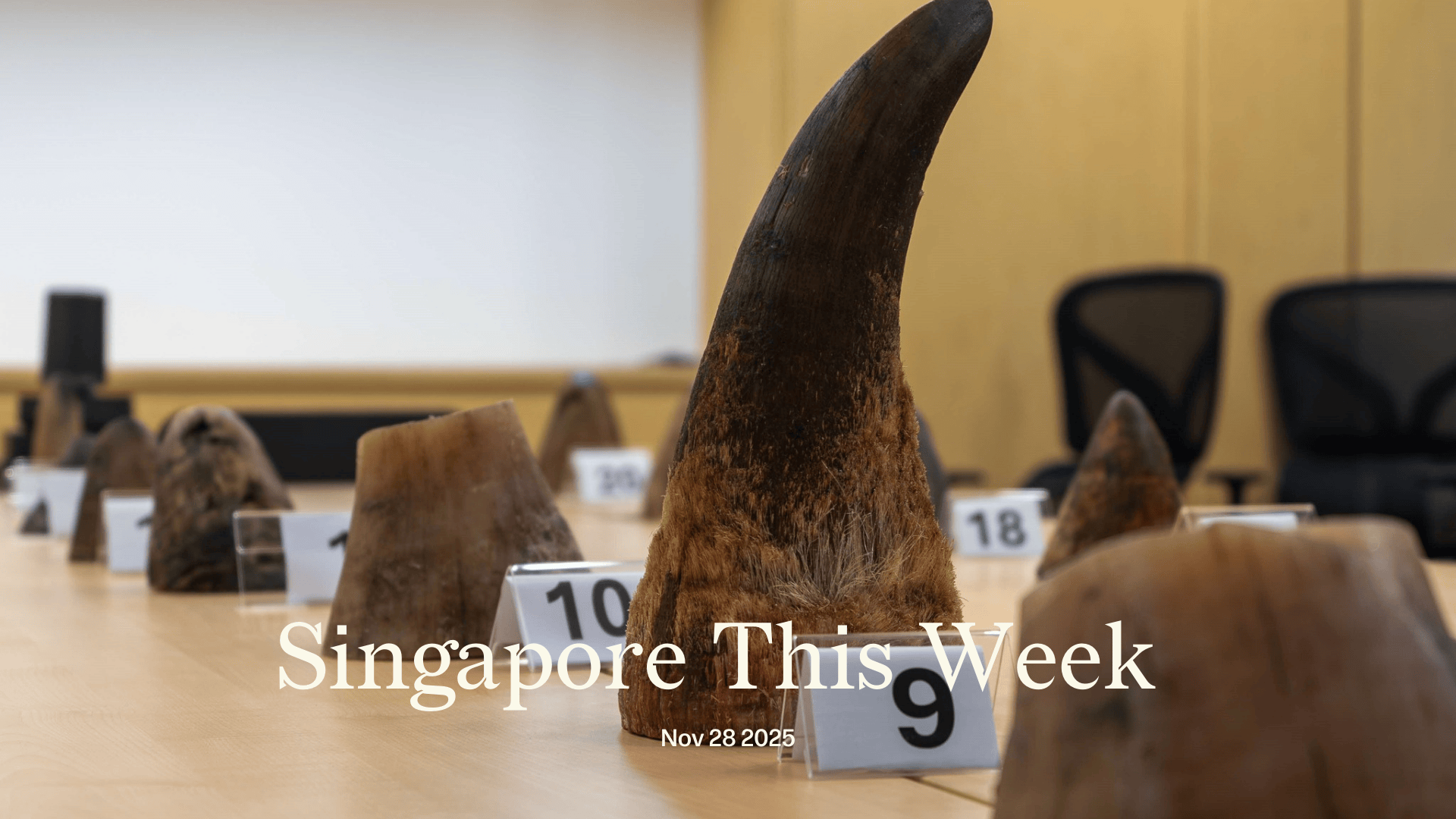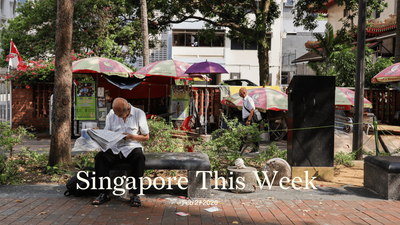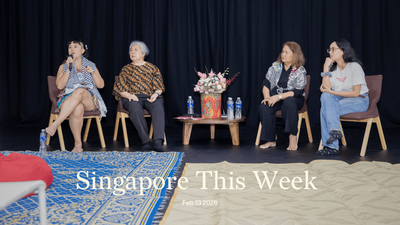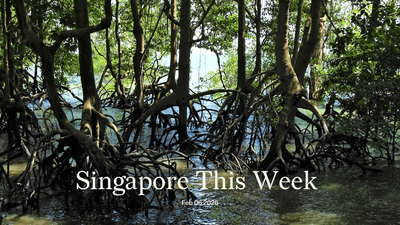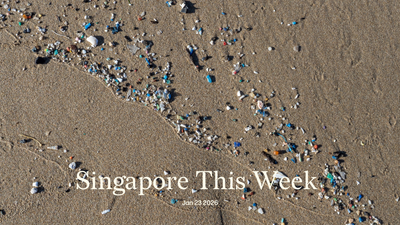Our picks
Politics: Balancing act gone wrong
The China-Japan flare-up has singed Singapore. Earlier this month, Sanae Takaichi, Japan’s prime minister, told her Parliament that a Chinese invasion of Taiwan could trigger a Japanese response. Takaichi framed it as “survival”, a term that unlocks legal grounds for overseas military deployment. Had a moderate uttered them, the words still would have caused a row; hardliner Takaichi has a penchant for revisionist world war two history making light of Japan’s crimes in China and South Korea. The diplomatic storm was expected. Beijing hauled up Japan’s ambassador, slapped a ban on seafood imports (Taiwan swooped), warned tourists and students off Japan, and sent warships close to Japanese territory. China’s envoy in Tokyo posted, then deleted, a lurid, if baffling, X post: “The dirty neck that sticks itself in must be cut off.”
Lawrence Wong, prime minister, was asked about the fracas at the Bloomberg New Economy Forum. “We all want stability in Asia,” he said placidly, before waxing eloquent about how South-east Asia had overcome its own trauma of Japanese occupation. So loving is the relationship now, he said, that Japan is the region’s most trusted big trading power. The online Sinosphere, seemingly reading this as a stony “Get over it” to China, lit up with fury: “China has been too good to Singapore,” said one malcontent. “Singapore is a running dog of the United States” said one more in a paroxysm of creativity. Others pejoratively referred to Singapore as “Po County”, casting Singapore as a Chinese vassal. Videos and articles taking potshots at Wong erupted like a ferocious bout of acne across Chinese social media platforms. Some of it was likely rage engineered for clicks; Beijing has made no official comment and probably won’t, given the time that has passed. Still, its tight control on info within the country means such a hostile barrage is unlikely without tacit approval.
Consider too, the larger implications for Singapore’s foreign policy. Recently, Wong has often spoken about an emergent multipolar world—at Bloomberg, he serenaded greater Japanese security presence in South-east Asia (another source of Chinese disaffection, no doubt); adverted to fresh trade alliances; and played up ASEAN’s role in this new geopolitical reality. But he was also at pains to talk about the importance of American leadership; declined to “referee” the recent Trump-Xi summit; and repeatedly towed the One China line. It’s a familiar tightrope for states medium, small, and tiny, made more precarious amidst larger geopolitical shifts. “The old rules no longer apply,” said Wong. “But the new ones have not been written”.
Society: There’s no gene for fate
It all happened so quickly. The first draft of the human genome sequence was published in 2001; the Human Genome Project was completed in 2003; the first map of human genetic variation was published in 2005; and CRISPR-Cas9, the gene editing tool, was discovered in 2013. We’ve passed numerous other milestones along the way, though like the thought of reading over 20,000 protein-coding genes spread across a double helix structure in chromosomes visible only with electron microscopes, perhaps it’s better we focus on the highlights.
Many of us are yet to feel the direct benefits of these stunning biotech advances. (No, that uncle who just discovered he has Aztec blood doesn’t count.) But for a growing number of eager parents, and their newborns, the effects have been profound. In particular, those considering in-vitro fertilisation (IVF) have for years now been able to conduct pre-implantation genetic testing (PGT) of their prospective embryos. This week, Singapore confirmed that 13 new conditions have just been added to the 156 already approved for PGT.
Six of the new are single gene defects that can increase the risk of a person developing conditions like cancer. Consider mutations in the RAD51D gene, estimated to occur in 0.3-0.5 percent of the population. According to doctors interviewed by The Straits Times, somebody who inherits this mutation is born healthy, but faces a higher lifetime risk of developing cancers—those with such mutations accounted for 0.3 per cent of patients with breast cancer, and 1 per cent of patients with ovarian cancer. The Ministry of Health confirmed that PGT cannot be carried out for social reasons, such as gender selection; or with the intention to alter an embryo’s genetic make-up (ie, to create designer babies).
For now. Remember He Jiankui, the Chinese doctor who in 2018 “created” Lulu and Nana, twins and the world’s first gene-edited babies? After three years in prison, he’s back, and in demand. Two posts on X this week: “Since I have the capability to edit human embryos, I have an obligation to use it”; and “The race between the US and China to edit genes in babies has begun”. Silicon Valley is pumping money into start-ups promising to alter embryos using CRISPR. The focus for now is, of course, on severe disease. Casgevy, the first licensed gene-editing treatment, modifies bone-marrow stem cells to cure people of sickle-cell disease—for US$2m (S$2.6m) a pop.
Embryo editing could theoretically be far cheaper. “Ultimately, some companies may promise edits aimed at a person’s appearance or intelligence,” said The Economist, suggesting that the UAE has been touted as a possible site because of a regulatory regime more liberal than the US. In “Gattaca”, a dystopian flick about genetic discrimination, Vincent Freeman (played by Ethan Hawke), a rare character conceived naturally, said: “They used to say that a child conceived in love has a greater chance of happiness. They don’t say that anymore.” Given the industry’s blistering pace of change—turbocharged by AI and cross-Pacific rivalries—how long before it’s not parental love that determines one’s happiness, but CRISPR?
Society: Rest in power
Three convicted drug traffickers were scheduled to be executed this week. One has been confirmed at the time of writing, though if all went ahead, Singapore would have executed 17 people in 2025, the highest in about two decades. On a per capita basis, Singapore is probably now in the illustrious company of Iran and Saudi Arabia, far ahead of China (based on 2023 data, the latest available, for the three).
The executions come even as the courts are set to hear a constitutional challenge against Singapore’s mandatory death penalty (MDP) for drug offences on December 3rd. The challenge was filed by seven Singaporeans. Three—Syed Suhail, Nazeri bin Lajim, and Tangaraju Suppiaare—are relatives of those executed between 2022 and 2025 under the MDP. The others are co-founders of the Transformative Justice Collective: Rocky Howe, Kokila Annamalai, Kirsten Han, and Jolovan Wham. Many countries, including Malaysia in 2023, have abolished the MDP in recent years; it’s time Singapore urgently examined its role in our criminal justice system. MDP’s retention has been justified here through its perceived general deterrence even though its effectiveness over other forms of punishment, such as life imprisonment, is inconclusive. Jom has explored this in-depth in “The death penalty: seeking an honest conversation”. You can also watch the companion video by Joleen Teo, in which she calls for an honest and evidence-based conversation about capital punishment.
Earth: A perfectly “imperfect” being
Bereft of inspiration after magicking the cosmos into being, the master of creation summoned his architect: make me something new. The frazzled underling smoked up for 21,000 years before creativity sparked. He blended an elephant’s skin, a horse’s hooves, a hare’s ears, a crocodile’s eyes, a bear’s brains, and a lion’s heart. In a stoned flourish, he also fused the two horns of a celestial bull and placed it atop the snout. Pleased, the boss breathed life into this “masterpiece of the art of imperfection” and released it into the mortal realm. Even in the mesmerisingly fertile universe of Asian mythology, the rhinoceros’s origin story stands apart.
There was a time when hundreds of rhino species roamed the world. Among them were the biggest land mammals to have ever existed—1.5 storeys high, long as two SUVs, heavy as a shipping container—some 23m years ago. By the time homo sapiens appeared 300,000 years ago, they had settled into eight or nine stable species spread across Europe, Africa, and Asia. And so they remained until humans began corralling nature, for sustenance, succour, and sport.
Around 2,000 years ago, ground rhino horn became known within Traditional Chinese Medicine for its antipyretic, antivenom, and anticonvulsant qualities. Lore fuelled demand, first for the Indo-Gangetic rhinos across the Himalayas and later, also for those that thundered across the vast expanses of Africa. But until the mid-20th century, “big-game hunting” and habitat loss extracted a greater toll. Hundreds of thousands of rhinos from Java and Sumatra to India, South Africa, Sudan, and Uganda were hunted by locals, royalty, the Dutch, the British, the Germans, and the Boers. By the time the colonial nightmare ended, the populations of all five extant species had already plummeted.
In the 1970s, someone in Yemen decided rhino horns would make for prized dagger handles. A new market opened up for poachers. By the early-1990s, only around 10,500 rhinos survived in the wild, down from more than half a million just 50 years earlier. Greater awareness and concerted conservation work have revived the population somewhat since, to around 27,000 across Asia and Africa. Even so, only two northern white rhinos remain. They’re both females, so the sub-species is likely doomed to extinction. Of the Javan and Sumatran varieties, only 30-50 are left.
Colonialism is past, and the terrible Yemeni dagger trade no longer flourishes but medicinal demand persists in Indo-China and China alongside a nauseating new use of rhino horns in jewelry as “investment”—despite China having banned domestic and international trade in rhino horns in 1993. The news that Singapore confiscated 35.7kg of rhino horns in transit from South Africa to Laos is welcome insofar as the smugglers will be punished. But the magnificent creatures shorn of their celestial accessory are almost certainly dead. And the world has become a little less magical.
Earth: (Avian) death by reflection
Each year, as the late-August heat softens into the first hints of autumn, hundreds of bird species across Arctic Siberia and East Asia begin their long southward migration along the East Asian-Australasian Flyway. Among them is the yellow-rumped flycatcher; a small, striking bird with sunny plumage, recognised by its “melodious calls with a distinct series of short, sharp whistles.” Breeding in the temperate forests of China, Korea, and Japan, it travels thousands of miles through Thailand, Malaysia, and Singapore before reaching wintering grounds in Sumatra and Java. But for countless winged migrants, the journey ends tragically against the glass and steel of our cities.
Neither the victims nor the sites are unique. From India to China, the United States to Europe, and across South-east Asia, the toll spans continents, and species: white-throated sparrows, song thrushes, Siberian blue robins, yellow-breasted buntings, Asian emerald doves, black-backed kingfishers, bitterns, pittas, and numerous others. Many belong to species imperilled by habitat loss and climate stress.
Building collisions are one of the largest human-caused sources of wildlife mortality. It is estimated that 100m to 1bn birds die from collisions annually in North America alone. Researchers point to several causes: artificial light that disorients night-flyers; reflective surfaces that mimic sky and vegetation; and “reflection aggression”, when birds attack their own mirrored image. In Singapore, a 2017 study by institutions like the Nature Society (Singapore) and National University of Singapore found that between 1998 and 2016, 66 percent of 237 migratory birds that struck buildings didn’t survive. And skyscrapers aren’t the only hazards.
Earlier this month, two pink-necked green pigeons and three Asian glossy starlings slammed into a clear panel at a bus stop near the Bukit Timah Nature Reserve within 24 hours; the pigeons died. Authorities have since applied frosted strips to this and three nearby bus stops. Decals and stickers are inexpensive, short-term measures according to the National Parks Board, who issued guidelines for visual markers in 2022. Others have stepped in to save our avian friends too. Project Avigate, led by Nanyang Technological University students, is raising funds to retrofit a glass-façade building on campus that has recorded 122 collisions involving 22 bird species over three migratory seasons. Conservationists also recommend switching off non-essential night lighting during migration season and installing fritted glass patterned to be visible to birds. Cities like San Francisco and Toronto have already implemented bird-friendly building standards. And retrofits to window glass in Oregon and New York have reduced crashes by over 90 percent.
Avian safety must belong at the centre of urban design. Why? Birds perform essential ecological functions that sustain ecosystems, including regulating insects, dispersing seeds, and pollinating plants. But even more importantly, a design shift would show we value our fragile biodiversity and respect our co-existence with non-human life. Caring costs little; indifference far more.
To report sightings of dead birds, contact the Lee Kong Chian Natural History Museum’s Dead Bird Hotline on +65 9876 4997 on WhatsApp, or @deadbirdhotline on Telegram.
Arts: Should money actually buy you everything?
In the age of AI art, you’d probably tune out anyone talking about NFTs. Unless, well, the person talking is a billionaire. Crypto tycoon Vignesh Sundaresan, or “MetaKovan”, as he’s crowned himself, has invented yet another thing for you to spend your money on. The technopreneur has opened an NFT art gallery in Tanjong Pagar while simultaneously claiming that he hasn’t purchased a single NFT work since he copped Beeple’s “Everydays: The First 5,000 Days” for an eye-watering US$69m (S$89.5m) in 2021. (He later charged the public US$2,500 (S$3,242) a pop to see the work on a giant screen.) Beeple himself seemed a little nonplussed by the sale: “An unfathomable number, to be honest.”
This isn’t the first time that Sundaresan has set up shop in Singapore. A meticulous investigative report by Reuters traces this back to 2018. He’d incorporated a company here to launch an “initial coin offering” (ICO) where, instead of shares, investors would receive a crypto coin. This, he hoped, would fund Lendroid, an Ethereum-based trading platform that would “reimagine trading” with a “lending pool” of crypto that lets users lend and borrow crypto funds directly, without a middleman. The company still exists, but has drawn flak from investors frustrated by a lack of progress and a collapse in the coin’s price. A disgruntled investor called Lendroid a “school project”; its digital strategist quit and filed a whistleblower report to the Ontario Securities Commission, accusing Sundaresan of fraud. The commission ultimately closed the file, and declined to comment about both the complaint and if there had been an investigation to begin with. The Monetary Authority of Singapore, which doesn’t regulate Lendroid, referred Reuters to the police, who said they hadn’t received any reports on either Sundaresan or the company.
But Sundaresan seems to have moved on, as he always has, to “the next cash cow” (as another vexed investor put it). He’s turned his attention to accumulating something more difficult to value than crypto, but a lot less difficult than fussy investors: digital art. Money can’t buy you luck or love. But it can certainly buy you a following who think they stand to profit from you. We can certainly hope money wasn’t what persuaded Icelandic-Danish artist Olafur Eliasson—best known for his elemental critiques of environmental destruction—to be in Singapore for the launch of Sundaresan’s gallery. In his “Ice Watch” series, Eliasson made us watch as massive ice blocks melted in the heart of urban centres, from Paris to London. In Singapore, he’s effectively celebrating the very thing his art cautions against: the infrastructure around crypto assets that’s contributing to ecological decline. A 2022 OECD report states, with chilling candour: “In 2021, Bitcoin was responsible for...0.2% of global emissions, greater than the carbon footprint of entire nations”. Maybe we should all be paying attention to the slow violence reshaping the planet, not the sensational digital fad that’ll eventually cool off.
Abhishek Mehrotra, Sakinah Safiee, Corrie Tan, Tsen-Waye Tay, and Sudhir Vadaketh wrote this week’s issue.
Letters in response to any blurb can be sent to sudhir@jom.media. All will be considered for publication on our “Letters to the editor” page.
If you enjoy Jom’s work, do get a paid subscription today to support independent journalism in Singapore.

